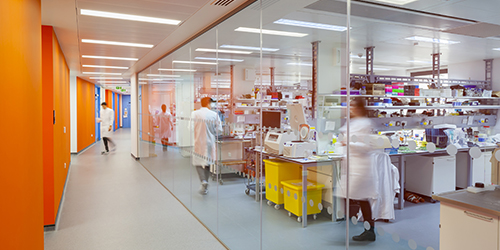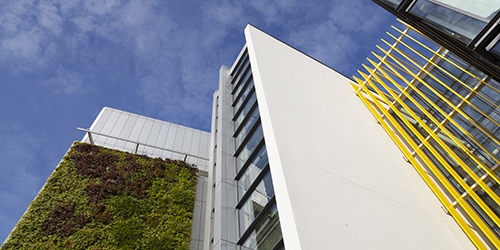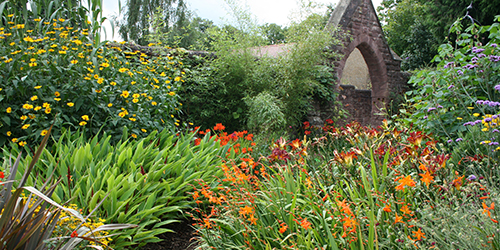Biological Sciences
Whether managing natural resources, conserving species, restoring ecosystems or ensuring global food security, biology and biologists will be vital for our planet in the 21st century.
Highly ranked
Biological Sciences at Bristol is ranked in the UK top 10 (QS World University Rankings by Subject, 2024).
Outstanding facilities
Our Life Sciences Building houses state-of-the-art laboratories and cutting-edge equipment for experimental work in microscopy, genetic analysis and environmental monitoring.
Industry links
You'll benefit from our links with conservation, biotech, agro-farming, the Bristol Zoological Society and the BBC Natural History Unit.
Biological Sciences courses for 2025
Single Honours
- BSc Biology (C100)
- BSc Biology with Professional Placement
- BSc Plant Sciences (C201)
- BSc Plant Sciences with Professional Placement
- BSc Zoology (C300)
- BSc Zoology with a Professional Placement
- MSci Biology (C103)
- MSci Biology with Professional Placement
- MSci Plant Sciences (C203)
- MSci Plant Sciences with Professional Placement
- MSci Zoology (C303)
- MSci Zoology with a Professional Placement
Biological Sciences at Bristol
Biological sciences at Bristol is distinct - we cover all aspects of biological life, from genes and cells to populations and ecosystems. Our focus on animals, plants and microbes covers the molecular to the ecological, reflecting how interdisciplinary modern biology has become.
You'll learn from our expert community of academics, whose research is organised around four main themes: evolutionary biology; animal behaviour and sensory biology; plant and agricultural sciences; and ecology and environmental change.
You'll study in the iconic Life Sciences Building, opened by Sir David Attenborough in 2014 as one of the UK's leading biology facilities. The building is home to state-of-the-art labs as well as break-out spaces, seminar rooms and social areas designed to enhance communication and idea sharing between students and researchers. View the 360 building tour.
Our Biological Sciences degrees explore the subject in detail, but do not focus on human biology. If human biology is your main area of interest, please consider our other undergraduate courses in the .
My time at Bristol has been absolutely amazing. I couldn't have imagined a better designed and organised course, full of interesting and current research!
Career prospects

Recent graduates have progressed to higher degrees or directly to employment in industries ranging from biological research to government agencies, conservation to science journalism.
Our degrees give you broad employment options beyond biology; you will be highly valued by employers outside of science as a numerate graduate with excellent analytical, problem-solving and communication skills.
Course structure

Our flexible biological sciences courses allow you to choose a broad biological education or to focus on particular areas of interest. The general course structure for zoology and plant sciences is the same as biology, but you will focus on animal or plant-based study, respectively. Visit the course pages to see what units you could study.
In your first year you will study biology units introducing the diversity of life and life processes; learn generic principles, skills and techniques; and choose an optional unit. In your second and third year you have considerable choice as to which aspects of biology you wish to pursue, as well as the opportunity to undertake your own research.
MSci students will learn advanced practical skills in the third year, in preparation for a major research project of your choosing in the final year. You'll also receive training to develop your research skills.
Our wide variety of field courses vary in both topic and location. From studying tropical biology in Costa Rica to evolutionary ecology of coastal habitats in Pembrokeshire, our field courses stretch across the globe and provide students with excellent hands-on research opportunities.
Community resources

The school has strong links with the BBC Natural History Unit, conservation organisations and the biotech industry.
The University's Botanical Garden is an excellent resource for exploring plant evolution, including succulents, orchids and waterlilies in our glasshouses; our unique sacred lotus collection; prehistoric plants; and rare and threatened natives.
The subject society BioSoc is open to all students interested in the living world, and they organise a family scheme, social events, and intramural sports teams.
